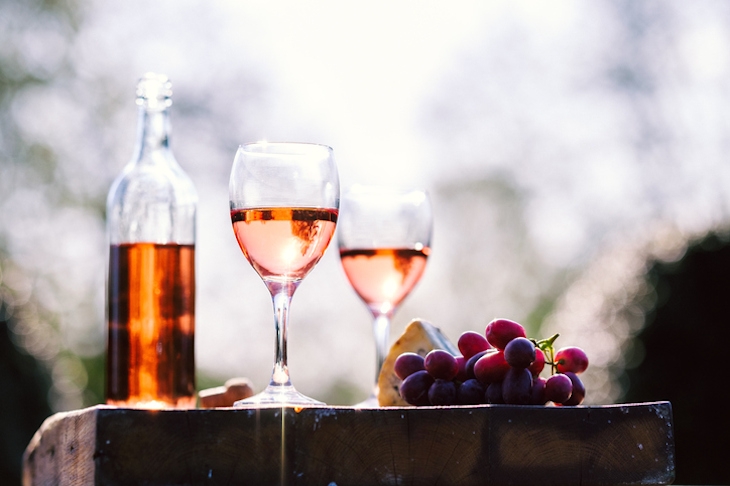It was a typical bank holiday. Usual English weather: glorious, until you leave home without a brolly. Then fickleness supervenes — just like the opinion polls. I was pressed by anxious enquiries. ‘You’re supposed to know about these things. There’s no chance of Corbyn winning, surely?’ On the assumption that enough of the sovereign people are still in their right wits, I was able to sound reassuring. But as I did so, a memory came back: Quintin Hogg in 1964, proclaiming that anyone who voted Labour was stark, staring bonkers. These days, that would be called a gaffe. The once and future Lord Hailsham was famous for gaffes. As he would now be called a national treasure, it is unlikely that any harm was done. But Harold Wilson still won.
Jeremy Corbyn is not Harold Wilson. Although a wholly meretricious figure, Wilson was able to persuade large numbers of people that he was just about the cleverest man in England. Mr Corbyn is not meretricious. Nor is he the cleverest man in England.
By then, the skies had darkened. Fickleness was turning to thunder. ‘The heavens themselves proclaim the death of governments.’ Let us hope not.
Wine is an admirable cure for anxiety, so we set about a bottle or two. If the worst comes to the worst, as a Russian grand duke once said, between the revolution and the firing squad, there is always time for a bottle of champagne. We started with a lesser source of comfort. Some of us are on a wine committee and it was necessary to taste some rosés.
I am not the ideal assessor of rosés. They work well if the temperature is in the 80s, preferably south of Lyon, with an idle day in prospect. A good book, a capacious parasol, the pool for occasional invigoration, lots of salady buffet for lunch and no need to move far until a dinner-time excursion for local gastronomy. In mid-morning, with the croissant crumbs brushed away, there is no harm in opening a bottle. As it is rosé, it can be at ice-lolly temperature. There is little subtlety to lose.
As the summer shyly approaches, it is horrifying how much serious white wine is drunk far too cold. Chardonnay needs a cool cellar temperature, otherwise the fragrance is jeopardised. Yet I see people who ought to know better put ice cubes in wine which deserves much better. Rosé does not require conscientious handling.
Which rosé? Domaine Montrose always seems competent. I am told that its name irritates Château Montrose, which is unnecessary. Colour apart, there is no comparison. The claret is at least a dozen times dearer — and worth it. If you live in a wine-growing region and make friends, you will probably be able to pick up some rosés that serious vineyards make for fun, as a women and children’s drink which is suitable for large summer parties.
Well beyond that there is Domaine Ott, a Bandol rosé which has cut itself adrift from the competition in prestige and price. It has been skilfully marketed and is pleasant. But £30 a bottle? You can buy a decent wine for that. Otherwise, in country, one can usually rely on the local cooperative. As most customers will be French, there should be no rubbish, except at an alarmingly cheap price. It is wise to go up the range, and it need not be too far up.
We went a long way up, to a serious range. Rosés capture, and accompany, the sun of the season. The next bottles were the mature fruition of sun, grapes and viniculture. Où sont les soleils d’antan? Here, preserved in a 2004 Echezeaux from Rouget and a 1997 Léoville Barton. They led us on a subtle and merry path to a different perspective. Both were fully mature. As one might expect from a ’97, the Léoville was slightly over the hill, but it had been a high hill. If you are lucky enough to have some, it does need drinking up — do not open it for too long. But it should outlast Jeremy Corbyn’s prime-ministerial ambitions.






Comments